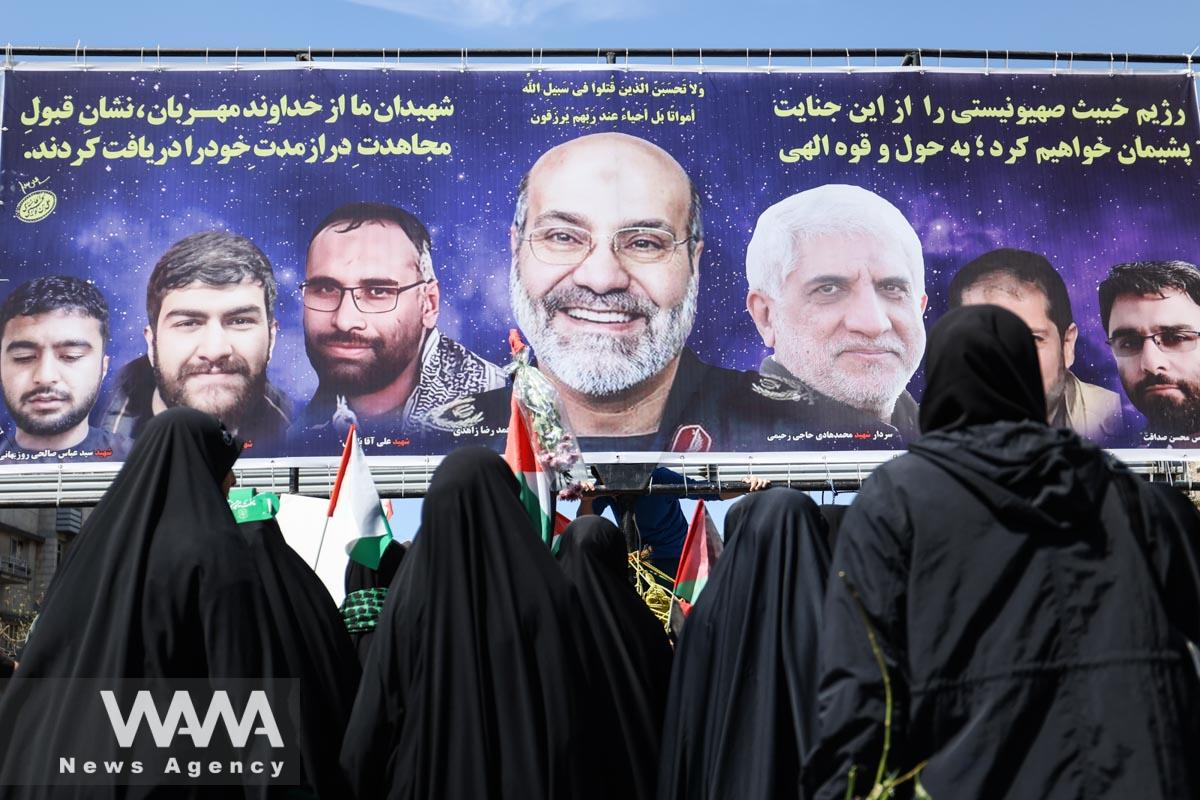Did the Syrians reveal the location of the Iranian general?
WANA (Apr 10) – In recent days, comments regarding the role of some elements of the Syrian government in the assassination of Iranian commanders have been published, which has attracted attention.
It has been claimed that Syrians are dissatisfied with Iran’s presence in their country, and for this reason, they disclose the whereabouts of Iranian commanders to Israel.
Regarding this claim, it is necessary to recall a few points. Firstly, those who publish such findings on social media do not have accurate information about what is happening in the region.
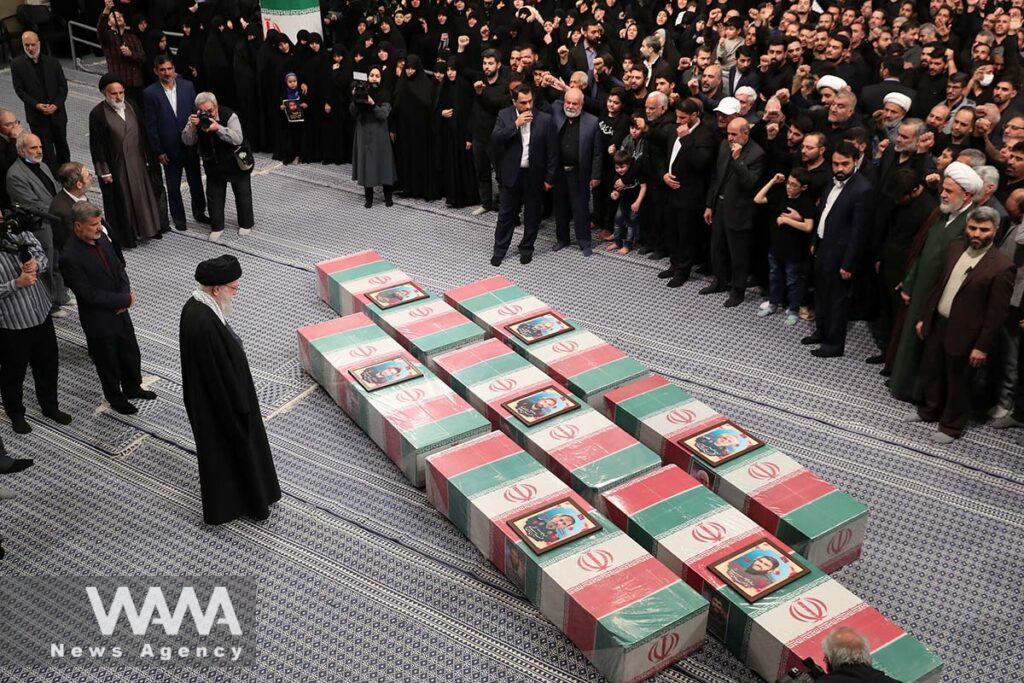
Iran’s Supreme Leader, Ayatollah Ali Khamenei, looks at the coffins of members of the Islamic Revolutionary Guard Corps who were killed in the Israeli airstrike on the Iranian embassy complex in the Syrian capital, Damascus, during a funeral ceremony in Tehran, Iran, April 4, 2024. Office of the Iranian Supreme Leader/WANA (West Asia News Agency)
It is a fact that the majority of members of the Ba’ath Party in Syria are not pleased with Iran’s presence in their country and do not consider the policies of the Islamic Republic in line with the principles of the Ba’ath Party.
For example, they are opposed to any form of Islamic political propaganda and governance, whether it be from Shia, Sunni, or Zaidi sects, considering it contrary to their secularist ideals.
Additionally, the Ba’ath Party is an extremist Arab nationalist party that cannot tolerate the presence of forces affiliated with a non-Arab state.
In the history of Syrian-Iranian political relations in the past 45 years, the late Hafez al-Assad and his successor, Bashar al-Assad, are among the few supporters of close ties with the Islamic Republic, and in this regard, they have even faced criticism from many influential members of the Ba’athist regime.
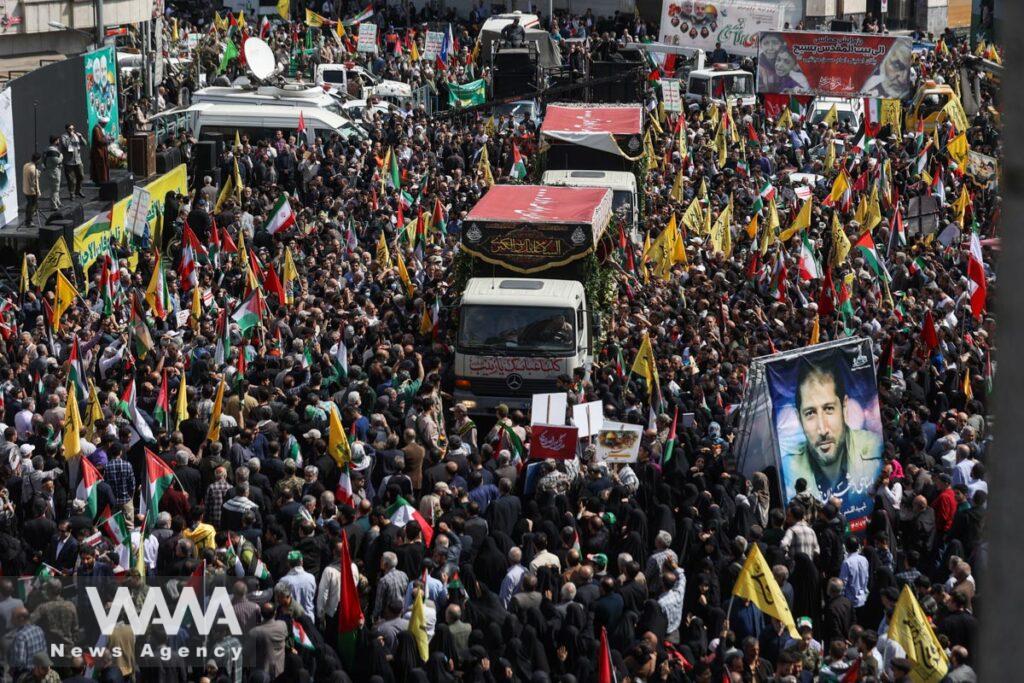
People gather for the funeral of members of the Islamic Revolutionary Guard Corps who were killed in the Israeli airstrike on the Iranian embassy complex in the Syrian capital, Damascus, on the same day as Quds Day in Tehran, Iran, April 5, 2024. Majid Asgaripour/WANA (West Asia News Agency)
For example, in the current circumstances, apart from Bashar al-Assad and his advisor, Bouthaina Shaaban, few have a unique and overt affection for the Islamic Republic.
The Syrian government, severely weakened and exhausted as a result of the 10-year civil war, prefers to resolve its internal problems rather than deal with the Palestinian issue and hostility towards Israel.
Syria is considered one of the poorest Arab countries that are trying to recover itself while parts of its territory are still occupied by terrorist groups such as Hayat Tahrir al-Sham, the Turkish government, and the United States, respectively.
In these circumstances, Syrian officials certainly do not want their country to become a battleground against Israel and have their infrastructure destroyed.
The Syrian government has not yet reconciled with Hamas and considers the Muslim Brotherhood as its enemy, refraining from expressing its opinion in the recent Gaza conflict as much as possible.
The Syrian government is stuck between its two allies, Russia and Iran; on the one hand, it cannot ignore Iran, and on the other hand, it tries not to upset the Russians.
However, Bashar al-Assad has more trust in Tehran, but the Russians have benefits for him that the Islamic Republic does not, such as the right to veto the Security Council.
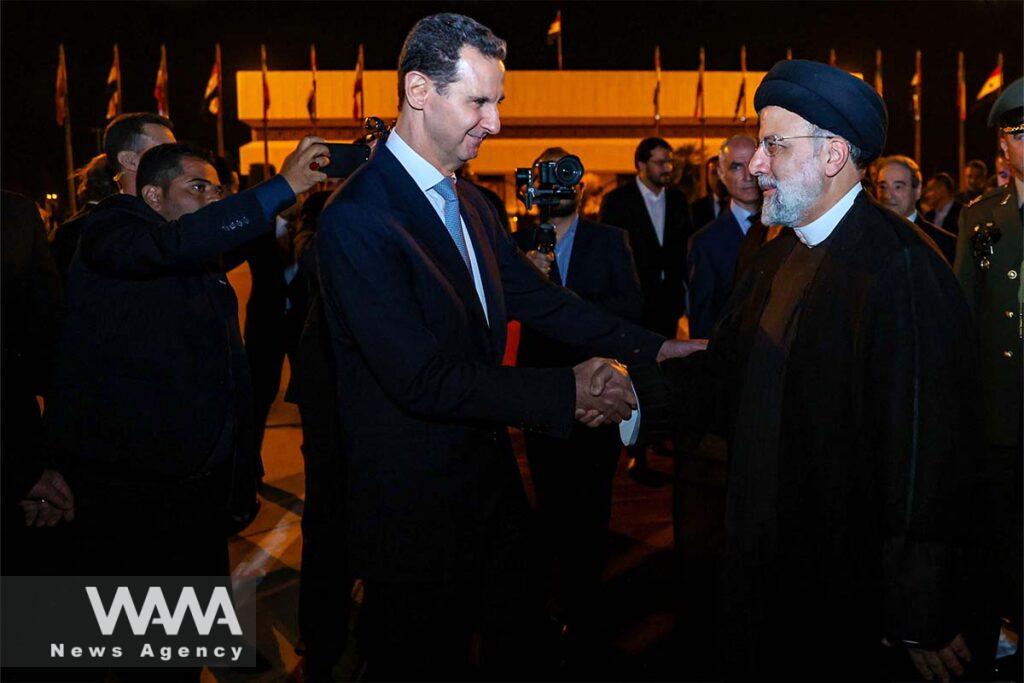
Syria’s President Bashar al-Assad saw off the Iranian President Ebrahim Raisi in Damascus airport, Syria, May 4, 2023. President’s Office / WANA News Agency
For this reason, on the one hand, it tries to keep Iran satisfied and prevent the forces associated with it from entering the Golan and the sensitive Al-Qaim-Al-Bukamal crossing, and on the other hand, it tries not to allow its soil to become the starting point of a widespread attack against Israel. The Russians have no inclination to disrupt the geopolitical balance and order in West Asia for various reasons.
The claim that Syrian officials provide information about Iranian commanders to the Israelis is purely false because Syrians consider Israel as their enemy, which has occupied a significant part of their land.
However, it cannot be denied that due to reasons such as extreme poverty among the people and internal crises, the Israeli intelligence system has been able to infiltrate Syria extensively and attract many news sources.
Israeli intelligence dominance in Syria is high, not because Syrian statesmen deliberately give the whereabouts of Iranian commanders to this regime.
The Syrian government is aware of the importance and position of Iran in preserving its survival and territorial integrity and combating various security and military threats, including terrorist groups. However, it does not see the withdrawal of Iranian forces from its soil as beneficial, but it also does not currently prioritize the liberation of Jerusalem.
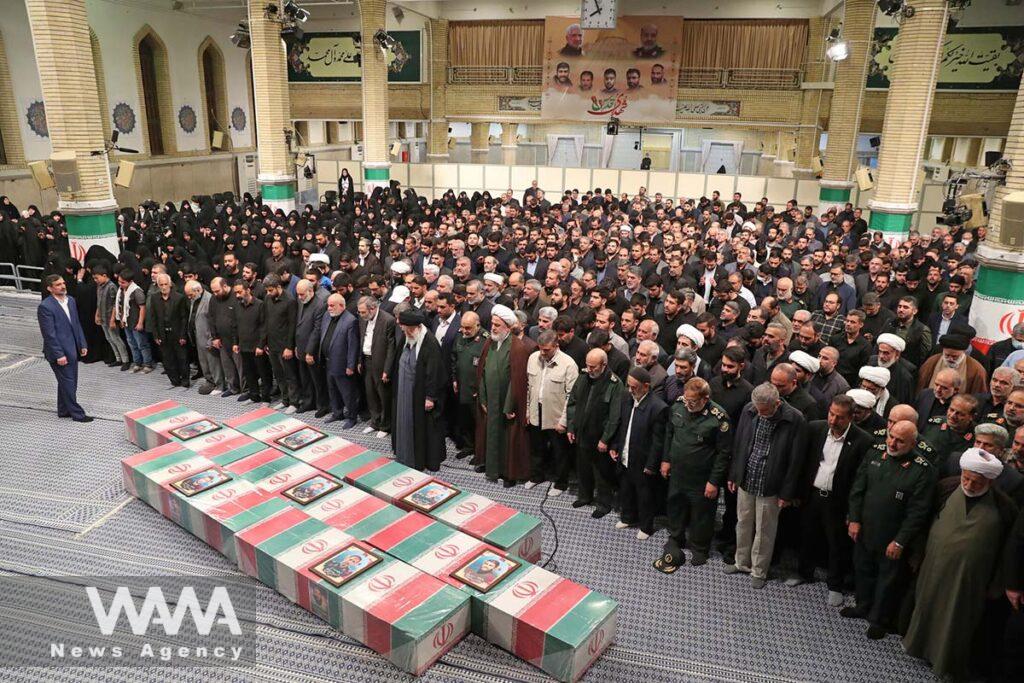
Iran’s Supreme Leader, Ayatollah Ali Khamenei, prays next to the Coffins of members of the Islamic Revolutionary Guard Corps who were killed in the Israeli airstrike on the Iranian embassy complex in the Syrian capital, Damascus, during a funeral ceremony in Tehran, Iran, April 4, 2024. Office of the Iranian Supreme Leader/WANA (West Asia News Agency)
ISRAEL ATTACK IRAN CONSULATE
On 1 April 2024, an Israeli airstrike destroyed the Iranian consulate annex building adjacent to the Iranian embassy in Damascus, Syria, killing 16 people, including a senior Quds Force commander of the Islamic Revolutionary Guard Corps (IRGC), Brigadier General Mohammad Reza Zahedi and seven other IRGC officers.

